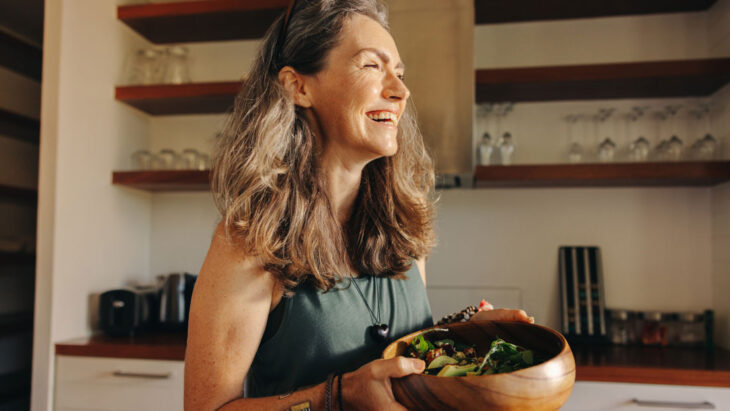As women age, maintaining bone and joint health becomes increasingly important. Osteoporosis and arthritis are common concerns, but with the right lifestyle choices, women can keep their bones strong and joints flexible well into their later years. Understanding risk factors, prioritizing nutrition and staying active are the keys to preventing deterioration and ensuring long-term mobility.
UNDERSTANDING THE RISKS
Women are at a higher risk for osteoporosis than men, especially after menopause when estrogen levels decrease. Estrogen plays a crucial role in maintaining bone density, and its decline can lead to brittle bones and an increased risk of fractures. Arthritis (particularly osteoarthritis) also is more prevalent in women due to hormonal changes, joint structure and even footwear choices over time.
NUTRITION FOR HEALTHY BONES AND JOINTS
A diet rich in calcium and vitamin D is essential for bone health. Calcium helps build and maintain strong bones while vitamin D aids in calcium absorption. Dairy products, leafy greens, almonds and fortified foods are excellent sources of calcium. Sunlight exposure and foods like fatty fish and egg yolks provide vitamin D. Many women may also benefit from supplements if dietary intake is insufficient.
KEEPING AN ACTIVE LIFESTYLE
Weight-bearing and resistance exercises are vital for maintaining bone density and joint function. Activities like walking, dancing and strength training help stimulate bone growth and keep joints flexible. Low-impact exercises (such as yoga and swimming) also can improve mobility while reducing joint strain. The key is consistency. Aim for at least 30 minutes of physical activity most days of the week.
LIFESTYLE ADJUSTMENTS
In addition to diet and exercise, other lifestyle factors contribute to bone and joint health. Smoking and excessive alcohol consumption can accelerate bone loss. Reducing or eliminating these habits can make a significant difference. Maintaining a healthy weight also is crucial. Excess weight puts additional stress on joints, leading to faster wear and tear.
Women also should prioritize regular checkups with their healthcare provider to monitor bone density and discuss any concerns related to joint pain or mobility. Early intervention, whether through medication, physical therapy or lifestyle changes, can help prevent serious complications later.
Dr. Christopher Palmer is an orthopedic specialist and surgeon with Ochsner Health. Connect with him at ochsner.org/doctors/christopher-palmer or by calling (228) 220-5200.


